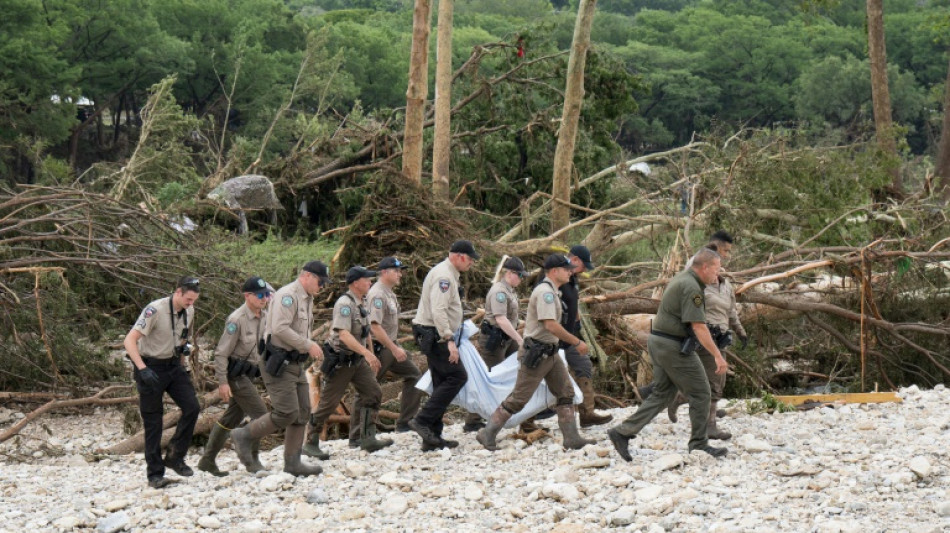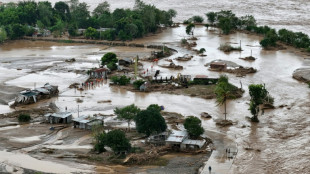

More than 160 people still missing days after deadly Texas floods
More than 160 people remain unaccounted for after devastating floods in Texas, the state governor said Tuesday, marking a dramatic increase in the number of missing from a tragedy that has so far claimed 109 lives.
Four days after flash floods roared through several Texas counties, some in the middle of the night, hopes of finding survivors were fading -- and Governor Greg Abbott warned that the list of those unaccounted for could yet rise as the grim search continues.
"Just in the Kerr County area alone, there are 161 people who are known to be missing," he told reporters.
"There very likely could be more added to that list," he said, adding that the figure was based on people reported as unaccounted for by friends, relatives and neighbors.
Kerr County, part of a central Texas region known as "Flash Flood Alley," suffered the most damage, with at least 94 fatalities.
That includes at least 27 girls and counselors who were staying at a youth summer camp on the Guadalupe River when it burst its banks as the Fourth of July holiday began in the early hours of Friday.
Torrents of water swept through the camp, scouring cabins as hundreds of people slept.
Five campers and one counselor were still missing as of Tuesday evening, according to Abbot, as well as another child not associated with the camp.
"There's nothing more important in our hearts and minds than the people of this community, especially those who are still lost," Abbot said.
Elsewhere in the state, there have been at least 15 fatalities recorded so far, the governor added.
Ben Baker with the Texas Game Wardens said search and rescue efforts involving helicopters, drones and dogs were extremely difficult because of the water and mud.
"When we're trying to make these recoveries, these large piles can be very obstructive, and to get in deep into these piles, it's very hazardous," Baker said.
"It's extremely treacherous, time-consuming. It's dirty work, the water is still there."
- Rain 'won't deter' search -
In the town of Hunt, the epicenter of the disaster, an AFP team saw recovery workers combing through piles of debris with helicopters flying overhead.
Javier Torres, 24, was digging through mud as he searched for the body of his grandmother, after having located the remains of his grandfather.
He also discovered the bodies of two children, apparently washed up by the river.
Officials warned of more heavy rain ahead that could affect the search -- though Baker said it "won't deter" the efforts.
President Donald Trump is due to travel to Texas with First Lady Melania Trump on Friday, and credited his strong ties with Abbott, a Republican, as having helped the rescue effort.
"We brought in a lot of helicopters from all over... They were real pros, and they were responsible for pulling out a lot of people. And we got them there fast, and Texas had some good ones too, but the response has been incredible," Trump said.
Meanwhile, questions intensified over whether Trump's government funding cuts had weakened warning systems, and over the handling of the rescue operation.
During an at-times tense news conference, Baker skirted a question on the speed of the emergency response.
"Right now, this team up here is focused on bringing people home," he said.
Shel Winkley, a weather expert at the Climate Central research group, blamed the extent of the disaster on geography and exceptional drought, when dry soil absorbs less rainfall.
"This part of Texas, at least in the Kerr County flood specifically, was in an extreme to exceptional drought... We know that since May, temperatures have been above average," Winkley told reporters.
The organization's media director, Tom Di Liberto, said staffing shortages at the National Weather Service had contributed to the disaster.
"You can't necessarily replace that experience," he said.
Q.Davis--CT



